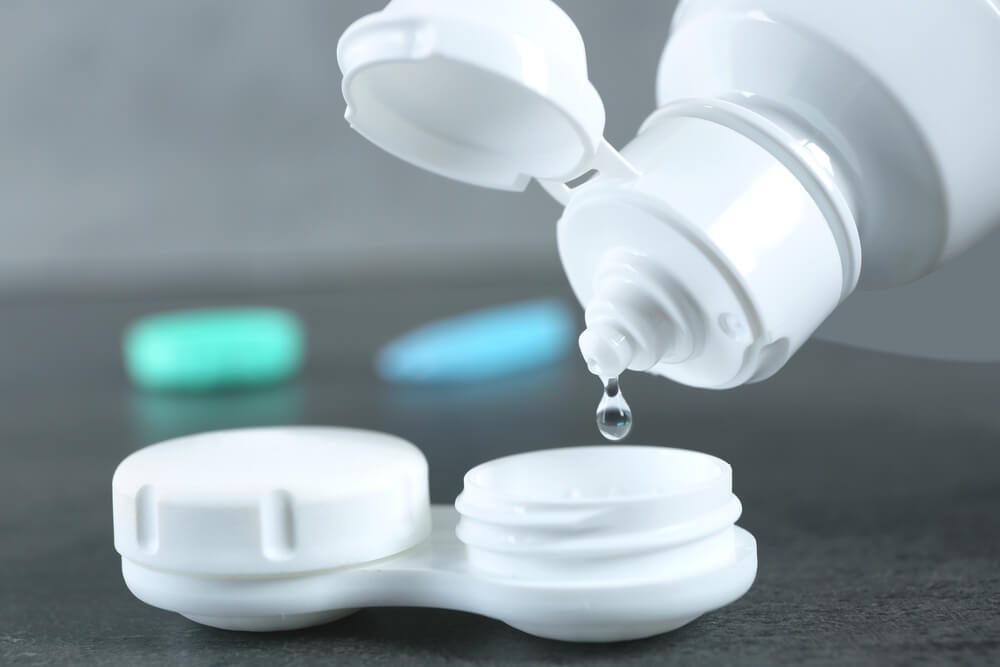Contact lenses have the potential to transform your vision experience – they give you the freedom to live an active lifestyle without the inconvenience of frames, they offer you unobstructed peripheral vision and they give you a natural look. So if you’d prefer not to wear glasses full time but are unsure about laser eye surgery, contact lenses could be the perfect eyewear for you.

But perhaps you’ve had a negative experience with contact lenses in the past? Are worried about touching your eyes? Or assume they’re not available in your prescription?
At Safarian and Simon we’re here to allay all your concerns, and equip you with the confidence to try contact lenses for yourself. So whether you opt for daily disposable contact lenses or bifocal contacts, multifocal contact lenses or overnight contact lenses, get clued up on what makes the perfect lens for you…
Materials
Thankfully we’ve come a long way since contact lenses were made from glass, and now the vast majority of lenses are made from soft plastics, most commonly silicon hydrogel. These advanced lenses are highly porous, sitting seamlessly against the surface of your eye whilst allowing oxygen to reach the cornea, and are available as daily disposable contact lenses, bifocal contacts, overnight contact lenses and multifocal contact lenses alike. However, in certain cases we may prescribe gas permeable lenses made of rigid plastic, which can provide sharper vision, particularly for those with astigmatism.
Wearing Time

Different types of contact lenses are available for all kinds of lifestyles and preferences, and as such come with different wearing times. Convenient daily disposable contact lenses are worn once and discarded before sleep, extended wear overnight contact lenses can be worn continuously for seven days or more, whilst others are removed, cleaned and stored overnight. But whatever your lens, every type must be replaced according to your prescribed schedule to avoid the build up of protein deposits and other debris.
Lens Types
Spherical contact lenses are the most commonly prescribed, featuring the same power throughout to correct long and short sightedness, but we also prescribe toric soft lenses to correct astigmatism and multifocal contact lenses and bifocal contacts to ensure you can see at both close and far distances. All our contact lenses can be custom fitted.
Care Schedule

Daily disposable contact lenses require next to no maintenance, but other lenses require a bit more TLC. Mostly commonly multi-wear contact lenses need to be removed, cleaned with solution and hygienically stored overnight. This helps get rid of any protein deposits or debris that might cause distorted eyesight, irritation or infection. During your trial appointment our optometrists will guide you through the process of caring for your specific lenses to ensure you maintain excellent vision.
Prescription, lifestyle and eye shape are just some of the factors that will affect what type of contact lens is right for you, so why not book your trial appointment with us today to see first hand how contact lenses could transform your vision experience?
Visit us at Safarian and Simon to trial the latest ranges of contact lenses. You can also call us on 020 7722 1917 or book an appointment online here!



